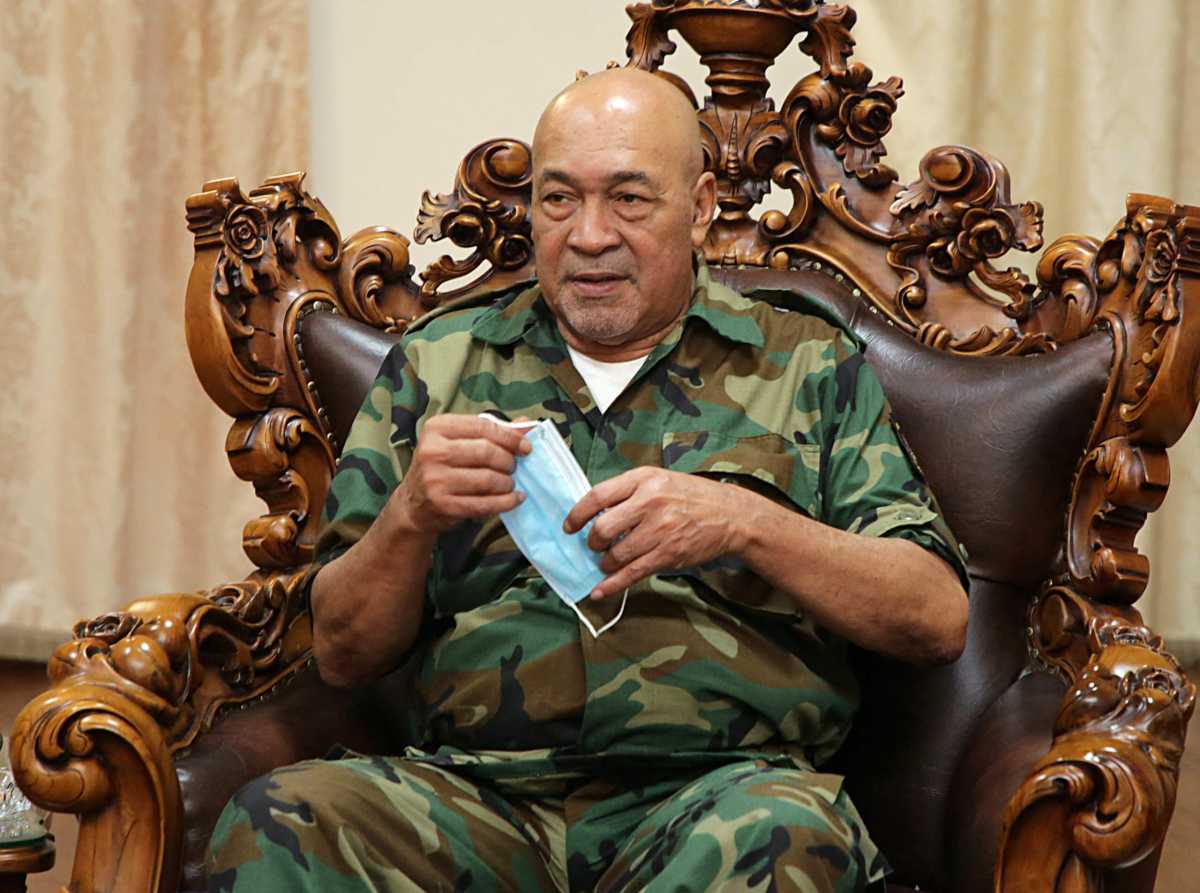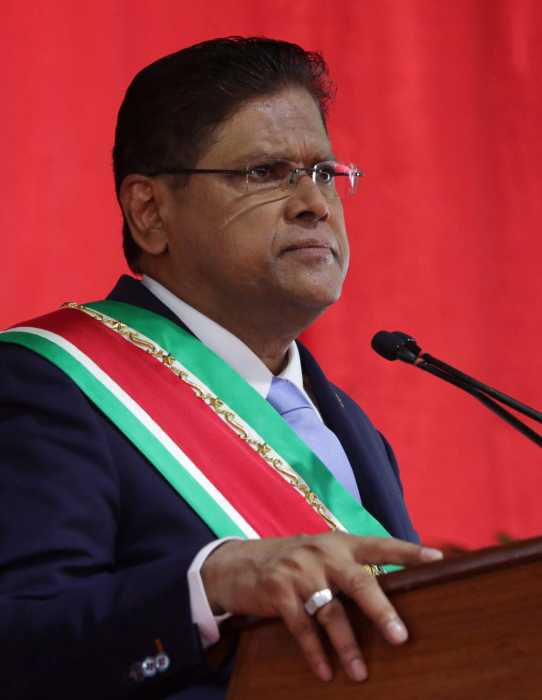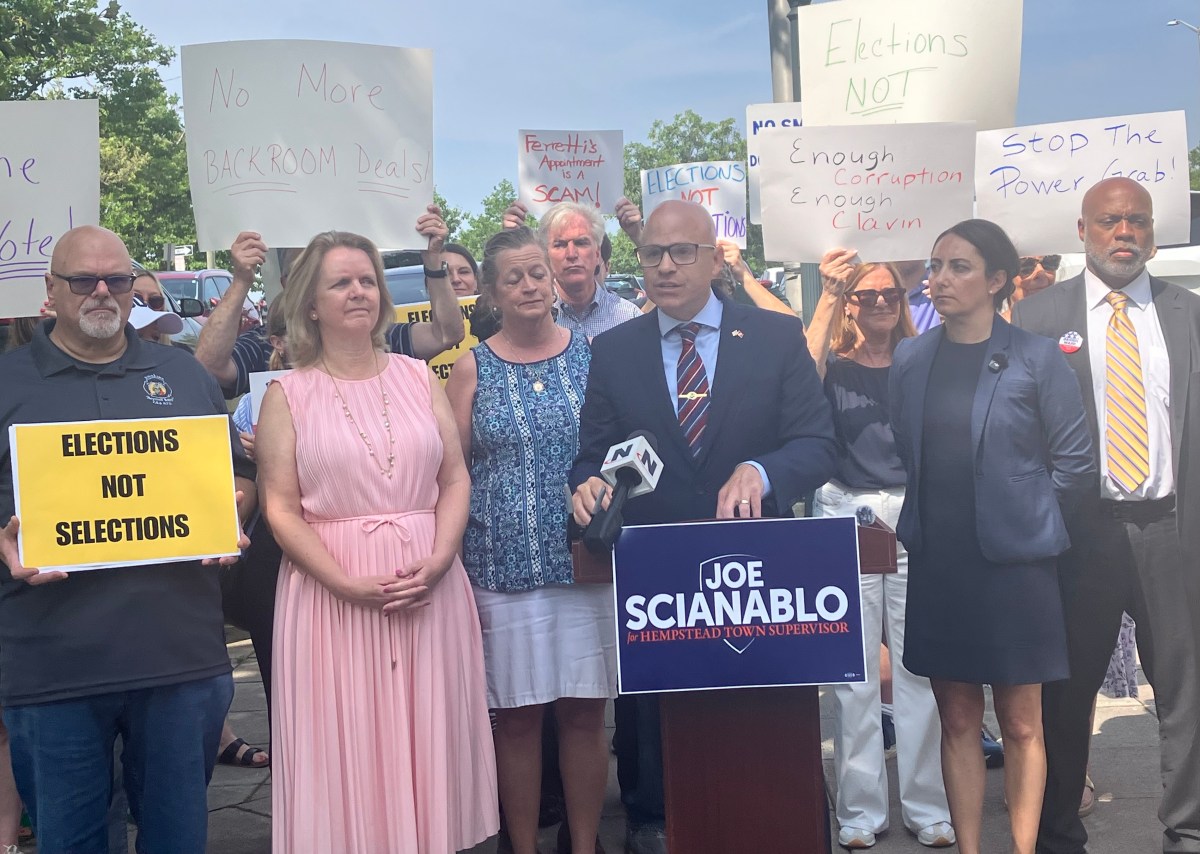His health is clearly failing, his multiracial party has significantly declined in popularity and surviving relatives are keeping up the pressure to ensure that former Surinamese military strongman turned elected President Desi Bouterse is held judicially accountable for the late 1982 mass executions of 15 government opponents.
At the end of August, one of Suriname’s highest courts will likely reaffirm a 20-year jail sentence on the former president following last week’s conclusion of trial proceedings against Bouterse for the execution of the 15.
Among them were four journalists, clergymen, academics and labor leaders, all of whom Bouterse and his military junta, which was ruling the country at the time, had been accused of plotting with The Netherlands and other western nations to reverse a Bouterse-led February 1980 coup. The 15 were killed at a downtown Dutch colonial era fort right next door to the presidential secretariat, sparking bedlam in society and political tremors in the region. Coup makers had said they were angry against the state over multiple issues including a very strange and unusual demand for a labor union for soldiers.
Bouterse and other top officials of his opposition National Democratic Party (NDP) appeared before the court tribunal on Friday. This was the very first time that the former two-term elected president had opened his mouth in his own defense as he accused Holland of plotting with the group and others to destabilize the country. He also blamed The Hague for using every trick in its armor to oust him and his government, stirring up and financing a seven-year bush war that killed more than 500 people and helping to ruin the economy during the seven full years of military rule.
“Whatever the final verdict of this legal process may be, history will acquit me of all blame for the sad, traumatic event of Dec. 8, 1982,” a clearly ailing NDP leader said. The court will hand down its ruling on Aug. 30. For all intents and purposes, the end seems to be near for the 75-year-old former army sergeant who in early 1980 had staged a coup against the elected administration.
After the hearing, Bouterse did appear to suggest that he is uncertain what will happen after the verdict, fueling speculation that he was threatening the state once again. His National Democratic Party (NDP), which had won two consecutive five-year terms, dropped to 16 seats from 26 as it lost power to a Hindustani-led coalition a year ago. It is expected to decline in influence and parliamentary seats in the coming years especially if he is off the political scene. The NDP had also had a four-year stint in government from 196-2000 before it was pushed out by popular protests against overspending among other issues.
Bouterse has persistently denied any direct involvement in the mass murders, saying only that he accepts collective responsibility because he was in charge at the time.
Meanwhile, the former president’s political and judicial woes have worsened even further as the constitutional court has ruled that a 2012 parliamentary amnesty that had given him and others immunity from prosecution is illegal, invalid and of no effect, as it clears the way for his month end sentencing. In all, Bouterse has been able to avoid jail time for nearly 40 years. NDP officials had placed a lot of faith in the amnesty but this has now been nullified.
“It is settled case-law of the Inter-American Court of Human Rights that if amnesties conflict with the American Convention on Human Rights, these amnesty will be declared null and void. Suriname has the jurisdiction of the aforementioned court recognized on Nov. 12, 1987 and is bound by its rulings. The court is therefore of the opinion that the aforementioned law is contrary to Articles 8, 10, 14 and 131 paragraph 3 of the Constitution of the Republic of Suriname. That the aforementioned law is contrary to Articles 2 and 14 of the International Covenant on Civil and Political Rights and that the aforementioned law is contrary to Articles 1, 8 and 25 of the American Convention on Human Rights,” said the judges.
Bouterse was also at the helm when senior military officers simply telephoned the then elected government on Christmas Eve in 1990 and told them to go home in what is widely known in Suriname as the famous telephone coup.

























